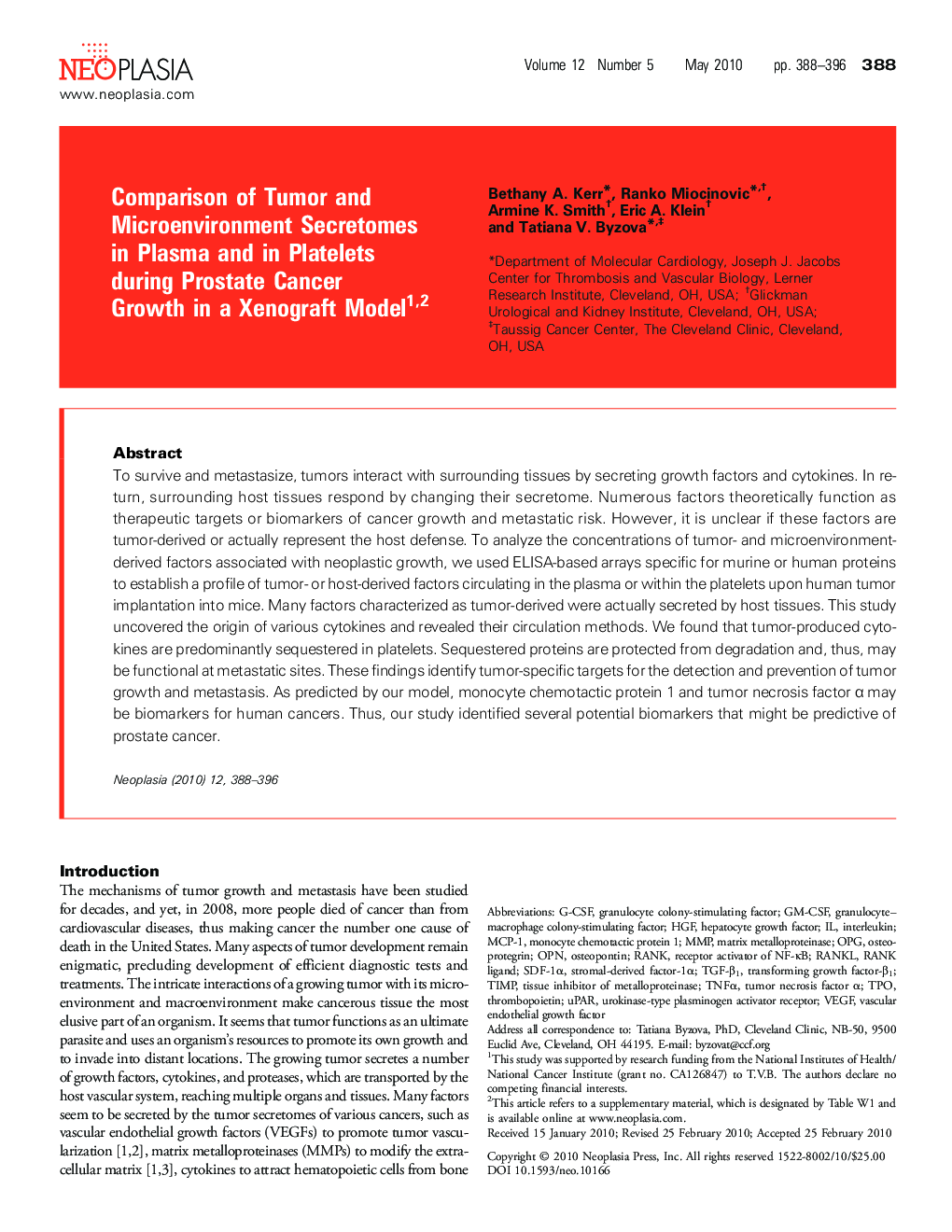| Article ID | Journal | Published Year | Pages | File Type |
|---|---|---|---|---|
| 2151900 | Neoplasia | 2010 | 11 Pages |
Abstract
To survive and metastasize, tumors interact with surrounding tissues by secreting growth factors and cytokines. In return, surrounding host tissues respond by changing their secretome. Numerous factors theoretically function as therapeutic targets or biomarkers of cancer growth and metastatic risk. However, it is unclear if these factors are tumor-derived or actually represent the host defense. To analyze the concentrations of tumor- and microenvironmentderived factors associated with neoplastic growth, we used ELISA-based arrays specific for murine or human proteins to establish a profile of tumor- or host-derived factors circulating in the plasma or within the platelets upon human tumor implantation into mice. Many factors characterized as tumor-derived were actually secreted by host tissues. This study uncovered the origin of various cytokines and revealed their circulation methods. We found that tumor-produced cytokines are predominantly sequestered in platelets. Sequestered proteins are protected from degradation and, thus, may be functional at metastatic sites. These findings identify tumor-specific targets for the detection and prevention of tumor growth and metastasis. As predicted by our model, monocyte chemotactic protein 1 and tumor necrosis factor α may be biomarkers for human cancers. Thus, our study identified several potential biomarkers that might be predictive of prostate cancer.
Keywords
MCP-1TPOSDF-1αOPNosteoprotegrinGM-CSFOPGRANKLHGFuPARTGF-β1TNFαMMPOsteopontininterleukinTransforming growth factor-β1Thrombopoietintumor necrosis factor αRankTIMPHepatocyte growth factorgranulocyte-macrophage colony-stimulating factorgranulocyte colony-stimulating factorVascular endothelial growth factorVascular Endothelial Growth Factor (VEGF)G-CSFRANK ligandmatrix metalloproteinaseTissue inhibitor of metalloproteinasemonocyte chemotactic protein 1Urokinase-type plasminogen activator receptorreceptor activator of NF-κB
Related Topics
Life Sciences
Biochemistry, Genetics and Molecular Biology
Cancer Research
Authors
Bethany A. Kerr, Ranko Miocinovic, Armine K. Smith, Eric A. Klein, Tatiana V. Byzova,
